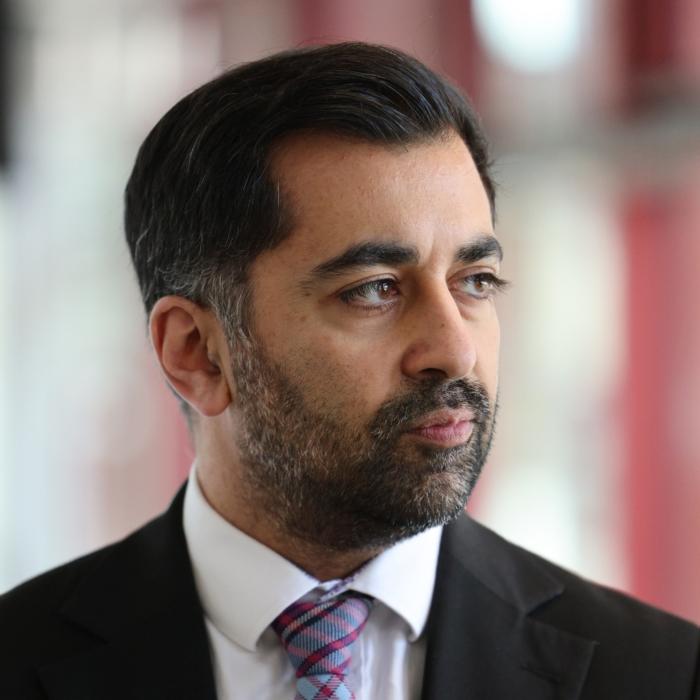The Scottish Conservative shadow justice secretary has raised concerns about First Minister Humza Yousaf’s proposed “stirring up hatred” laws, which he said could jeopardise free speech in the country.
Member of the Scottish Parliament Russell Findlay penned a letter to the Cabinet Secretary for Justice and Home Affairs Angela Constance on Tuesday, seeking further clarification and a date on the implementation of the Hate Crime and Public Order Act.
The Scottish National Party’s bill, introduced by Mr. Yousaf when he was justice secretary, was approved by the Scottish Parliament in 2021 and has received Royal Ascent, but has been dormant since.
“Humza Yousaf’s hate crime law was passed almost three years ago. It seems likely to be enacted soon and will put free speech in Scotland at risk,” wrote Mr. Findlay.
He said that his party believes the legislation risks eroding Scots’ right to free speech and that some of its provisions will be difficult, if not impossible, for the police to enforce.
He added that the Scottish Police Federation says that it will “devastate the legitimacy of the police in the eyes of the public.”
He also claimed that Mr. Yousaf and the rest of the government have “ignored these and many other serious and credible warnings.”
Mr. Findlay asked for a specific date when it will come into force.
A spokeswoman for Mr. Findlay told The Epoch Times that the letter was sent to the Scottish Government on Tuesday “so no response has been received yet.”
‘Stirring Up Hatred Offences’
The bill, which is expected to take effect this year, has been described as the most “illiberal and censorious bill in any liberal democracy in the world,” by a broad range of free speech groups.The Scottish Government says the act has been designed to make hate crime law “fit for the 21st century“ and defines hate crime as the phrase used to ”describe behaviour which is both criminal and based on prejudice.”
“Stirring up hatred offences” will apply to characteristics including age, disability, religion, sexual orientation, transgender identity, and variations in sex characteristics, which some argue will clash with the expression of views on all manner of subjective beliefs.
At one point, Mr. Yousaf said he intended to clamp down on so-called hate speech inside the home.
Will Be Fully Investigated
Authorities are preparing to implement the act.Assistant Chief Constable Faroque Hussain said that the Hate Crime and Public Order (Scotland) Act “creates new offences and increases the number of protected characteristics from five to seven.”
He added that this “new legislation will increase our ability to bring to justice those perpetrators of hate against protected people and groups.”
“We want everyone targeted by hate crime, or those who witness hate crime, to have confidence to come forward. They can be assured they will be treated with respect and dignity, and that the circumstances they report will be fully investigated.”
At the time, Richard Lucas, leader of the socially conservative political party the Scottish Family Party, voiced concerns to The Epoch Times about police training potentially veering into political ideology.
“They finally got around to deciding they need this special unit where the officers will be trained sufficiently in the political ideology they’re supposed to be enforcing,” he said.







